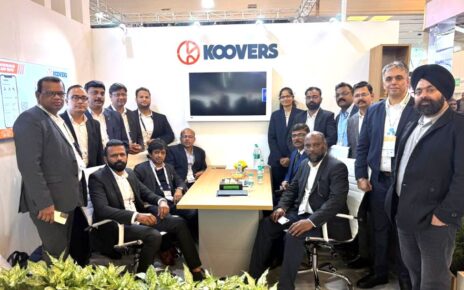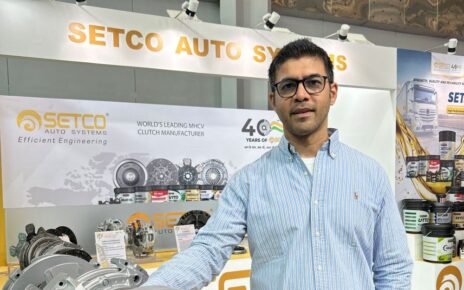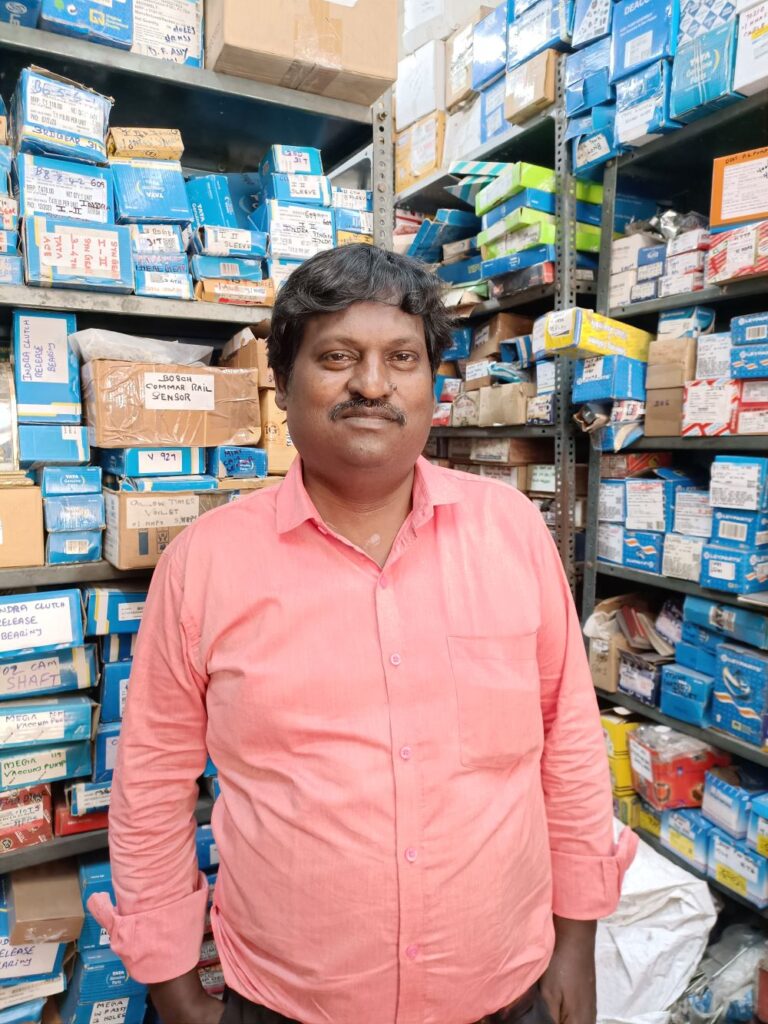
In the labyrinth of automotive maintenance, there exists a beacon of reliability known as Tempo House. Established in 1971 by a visionary patriarch, this haven for commercial vehicle owners emerged from a simple need—to bridge the gap between demand and supply for three-wheeler tempo spares in a market devoid of such provisions. Over five decades, Tempo House has evolved into a cornerstone of the automotive spares industry, expanding its repertoire to cater to an array of vehicles, from the iconic Tempo Traveller to modern-day marvels like Tata Ace and Leyland Dost. With an unwavering commitment to quality and authenticity, Tempo House has not just flourished locally, but has garnered acclaim across borders, drawing patrons from Tamil Nadu to Sri Lanka. As G. Siva Kumar delves into the ethos of Tempo House, Raghul Sivaguru uncovers a narrative of resilience, adaptation, and an unyielding dedication to customer satisfaction.
When was Tempo House started? What is the motto behind it?
My father started this shop in 1971. At that time, three-wheeler tempos were the only option available, and he owned one himself. Since spare parts for these vehicles were not readily available, Tempo House was established. Later, spares for models like Matador and Tempo Traveller were also included, and now we stock spares for vehicles like Tata Ace and Leyland Dost as well.
Which segments does Tempo House cater to? Are there any models you specialize in?
We specialize in commercial vehicles and Tempo Travellers. For the Tata Ace segment, we stock spares up to the latest BS-6 norms. Additionally, we offer spares for small commercial vehicles (SCVs) such as Tata Intra, Leyland Dost, Mahindra Maxximo, and pickups.
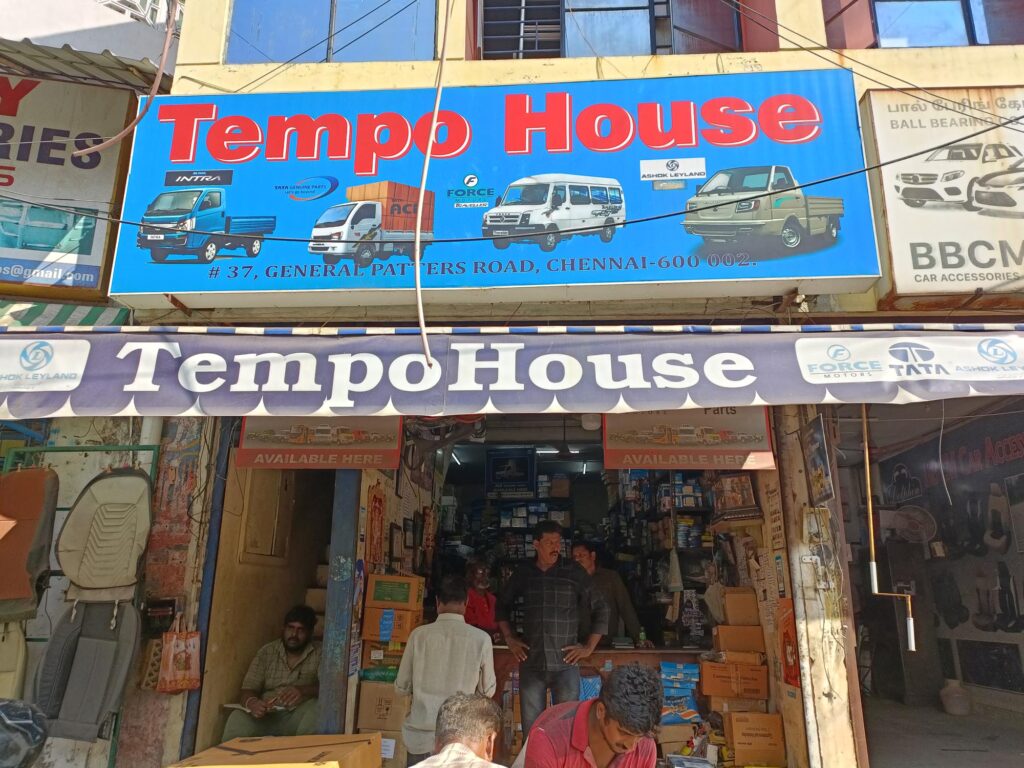
What is the target demographic for Tempo House?
Our prime customers are mechanics referred to us by workshops, along with individual vehicle owners seeking small products like mirrors and lights.
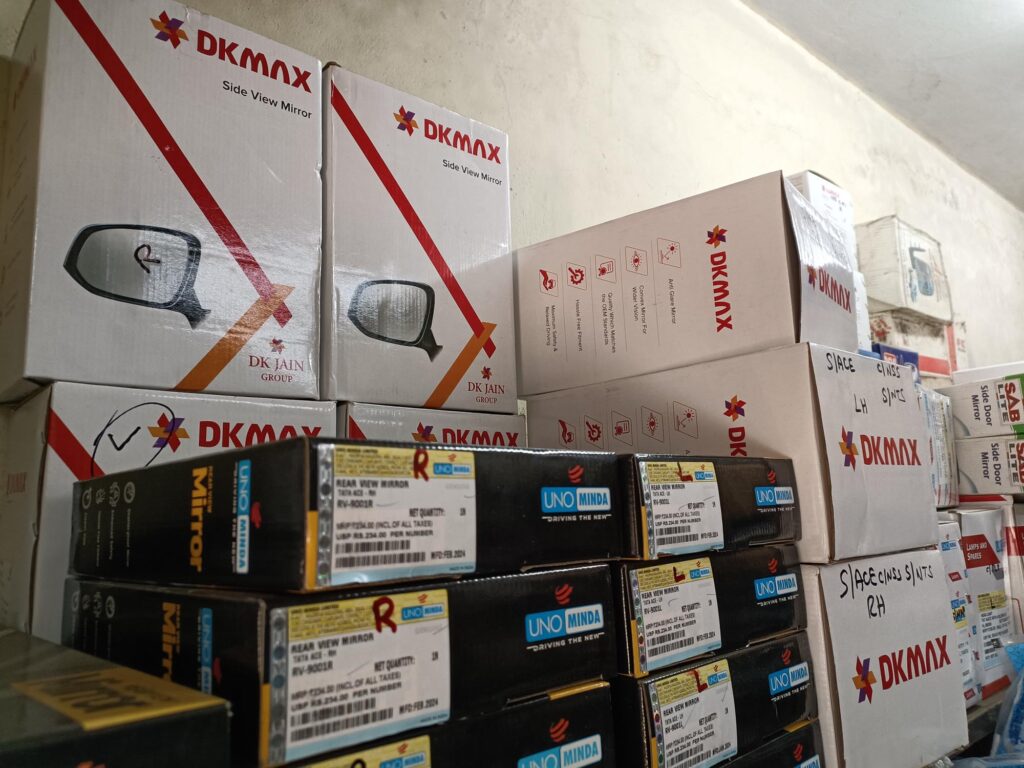
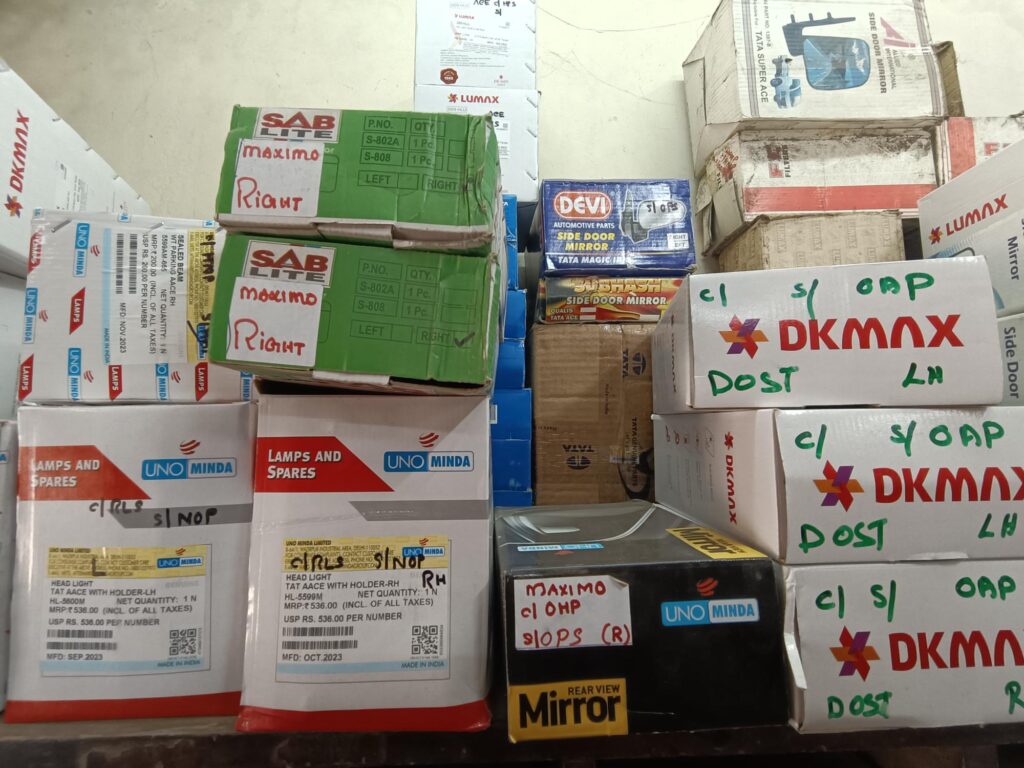
What do customers expect when entering Tempo House?
Quality is our strength, and we have been dealing in genuine spares since our inception. As a result, we have customers not only from Tamil Nadu but also from Andhra Pradesh, Andaman, and Sri Lanka. We have maintained this reputation for the past 52 years. We are renowned as the top supplier of Tata Genuine Spares and also retail Tempo, Ashok Leyland, and Mahindra Genuine Spares.
Do you deal with supplier company spares as well?
We offer equivalent OEM spares. For example, we stock air filters from Bosch and Purolator, headlights from Lumax and Minda, and products from Wheels India, Brakes India, and LUCAS TVS.
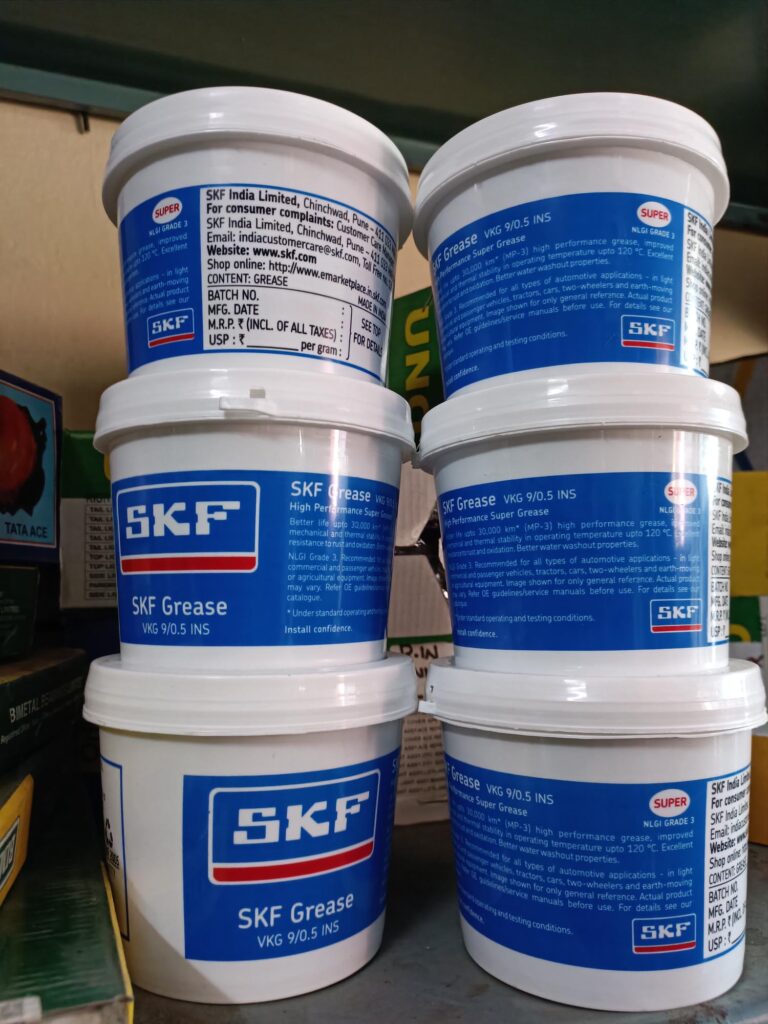
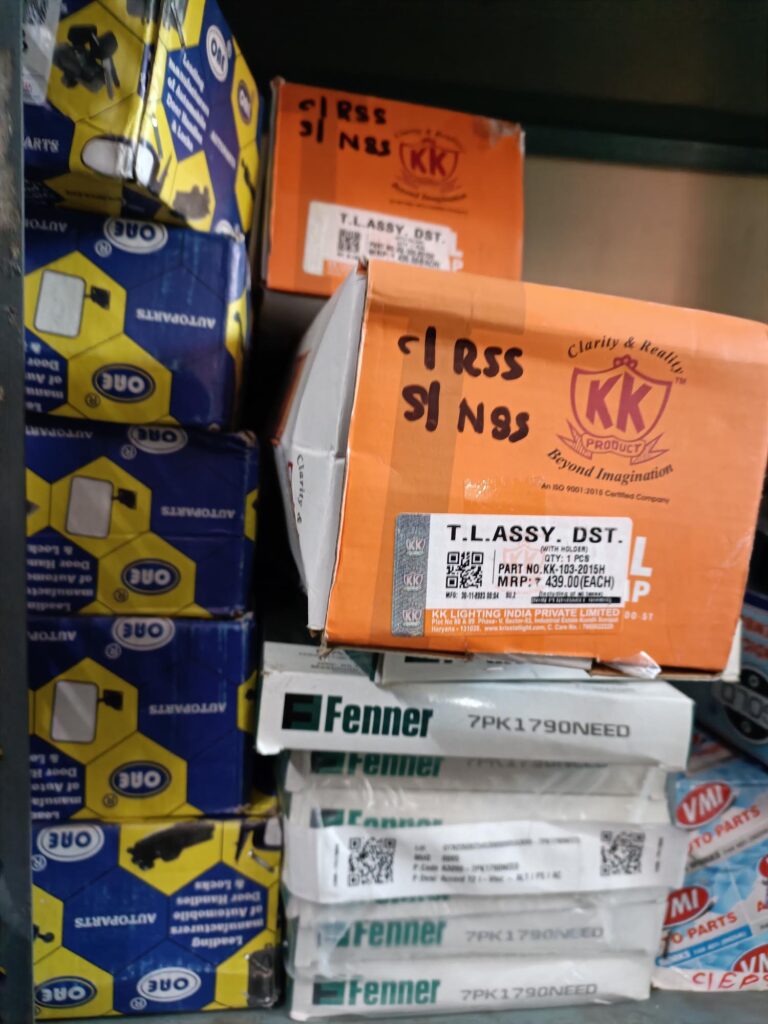
With recent price hikes on OEM spares, do consumers opt for equivalent supplier brand parts?
Some consumers may consider equivalent parts due to price hikes, but they prioritize genuine spares for replacements, even if it means waiting for them.
Is there a shelf life for all spares?
It’s not usually a concern, but products like shock absorbers have a warranty of six months, with the manufacturing date indicated. We aim to avoid issues by maintaining spares made within the last 2-3 months or a maximum of 90 days.
Is there a market for used and duplicate parts in the commercial segment, and what is your stance on it?
While there used to be a market for duplicate and used parts, their usage has decreased significantly. Measures such as QR codes and hologram labels have helped reduce duplication. Today’s customers are well-informed and prefer genuine parts. However, some customers may inquire about matching the prices of duplicate spares with genuine ones, which we politely decline.
How much of a focus do you think fleet owners and drivers give for vehicle maintenance?
Fleet owners and drivers are aware of the importance of proper maintenance, particularly for obtaining a valid Fitness Certificate (FC). They prefer using genuine spares for periodic replacements.
Are customers aware of the correct specifications for consumables?
While some customers may not be informed, mechanics often educate them. We ensure to provide the correct consumables tailored to their vehicle’s needs.
Are customers patient enough to wait for spare parts?
Walk-in customers may not be willing to wait, but loyal customers are prepared to wait for the right parts, although waiting times are usually minimal due to our ample stock.
Do online platforms selling genuine and supplier spares pose a threat?
While we have adapted to online platforms like Flipkart and Amazon, most customers still prefer the in-person experience. Misfits and confusion may occur with online purchases, but we exchange wrong parts for the right ones.
How do you perceive the business trend with the adaptation of BS 6 ODB 2 emission norms?
Staying updated is crucial for survival in the market. However, the expensive Diesel Exhaust Fluid (DEF) setup in recent vehicles may lead to the closure of workshops not equipped to handle it.
With the increasing penetration of electric vehicles (EVs) in the commercial segment, what challenges do you anticipate?
The transition to EVs will significantly reduce the number of spares required, impacting our business scope. Staying up-to-date with current trends is vital for survival.
How do you view the future with the rise of alternative fuels?
The growth of EVs in the commercial segment is slow due to high initial costs. Until alternative fuels become widespread, we’ll continue to operate our retail chain accordingly.



